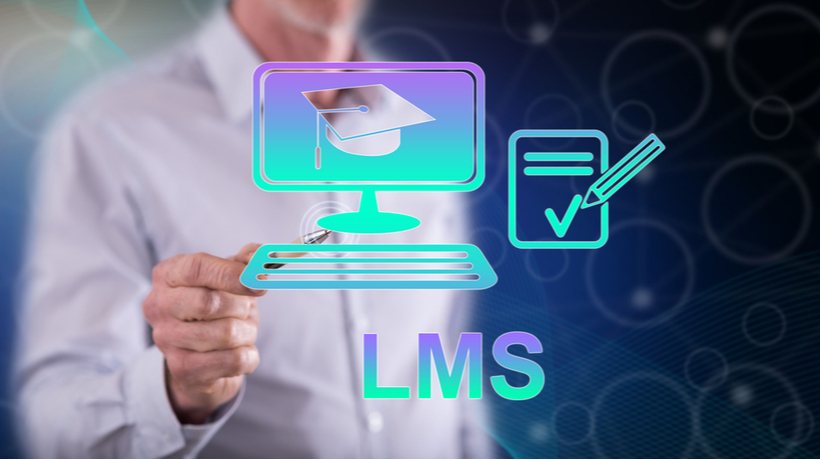LMS Features Non-Profit Organizations Absolutely Need
Non-profits are usually working with a limited budget. There’s only so much you can set aside for an online training system. Which means you need to get the best value for money in order to stretch resources and keep your staff in-the-know. After all, private foundations and public charities must equally be able to spread the word about their cause. Or update volunteers and donors about recent developments. Online training software enables you to maintain full transparency and ensure that every member of the team is compliant. Add these 9 essential features to your non-profit LMS shopping list to get the best return on your investment.
9 Top Features To Look For In A Non-Profit LMS
1. Built-In Authoring
The non-profit LMS helps you deploy training tools and track engagement. But you still need to create content to upload to the system. Which calls for a third-party authoring tool that’s compatible with the system. You can simplify matters (and cut costs) by investing in a LMS with built-in authoring opportunity. Develop and deploy content using a single tool. These platforms usually feature templates and other assets that reduce development time. Plus, you don’t have to worry about formatting issues, since there’s no content migration involved. Be sure to ask the vendor whether the package includes an asset library or if that comes at an additional fee.
2. Certificate Management
Verify that every member of your team, both internally and externally, are operating at the same level. Certificate management support holds them accountable and ensures they’ve met your non-profit’s standards. For example, your volunteers are aware of your policies for accepting donations since they’ve earned their certificates and passed the final exam. You should also look for automatic renewals if your certificates have an expiration date.
3. Offline Mobile
Non-profit organizations may employ in-house staff, but many work through external partners. There could possibly be volunteers or remote teams who advocate for you at the local level. As such, you need to be able to provide them with easily accessible resources. Even if they don’t have an internet connection. Offline mobile LMS solutions allow them to get the training resources they need on any device. They can watch videos or view tutorials via an app or download them for later.
4. Multilingual
Even if your non-profit is based in a single location and only operates at the regional level, you probably still have a diverse audience. People from different backgrounds with different native languages. For organizations with a global reach, this is definitely the case. Look for online training software with multilingual features that makes training accessible for everyone. For example, the platform automatically displays the translated version of the onboarding course for new hires in a certain area.
5. Calendar
Employees, partners, and donors alike should be kept up-to-date with organizational events and training opportunities. Such as the webinar you’re hosting next month or the fundraising efforts you’ll launch this year. You can keep track of these important milestones with a built-in LMS calendar. Which also helps your staff monitor important training deadlines. Like the last day they can earn their certificates.
6. Self-registration
Trainees should be able to sign up for courses that are relevant to them and their job description and/or goals. As well as create their own training accounts. Self-registration automates the process. You can still restrict who has access to what. However, they don’t have to contact the admin to enroll in training courses that help them build crucial skills and explore compliance topics.
7. Report Scheduling
Monitoring trainee engagement and completion rates is essential. You need to keep track of not only how employees are performing, but whether your resources on target. Report scheduling helps you measure the success of your initiatives and provide support to those who lag behind. For example, volunteers or staff members who aren’t able to earn a certificate after 3 failed attempts. You can even verify that reports are automatically sent to relevant supervisors or team leaders.
8. Survey Engine
Online training is a team effort. Just as your trainees need feedback to help them improve, you need their input to continually improve your content. One of the most valuable feedback LMS features is a built-in survey engine. The functionality varies depending on the system you choose. While one might allow you to do everything from developing surveys using templates to evaluating the data via graphs, others have more limited capabilities.
9. Live Video
Live video is a versatile non-profit LMS feature because it opens up the lines of communication and facilitates collaboration. You can use it to host live events and webinars. Schedule group project meetings with your remote staff. Or even invite trainees to host their own brainstorming sessions to benefit from the expertise of peers. You can purchase third-party video conferencing tools. However, having one built right in avoids compatibility issues and centralizes your training. Trainees don’t have to worry about where to log in for the next event and can quickly refer to the community calendar for reminders.
Conclusion
The most effective way to vet the vendors and decide which non-profit LMS offers maximum ROI is a free trial or demo. With your must-have features list on-hand, weigh your options and evaluate each function during the test drive. You should also create a detailed budget to narrow your search parameters and account for those treacherous hidden fees. Lastly, look up online ratings to see how they stand up against the competition in regard to UX, CX, and overall satisfaction.
Invest in the best non-profit LMS for your organization and simplify your search. Our online directory features the top learning management systems for charities, foundations and other tax-exempt institutions. You can even read reviews to determine which online training software is right for your team.








